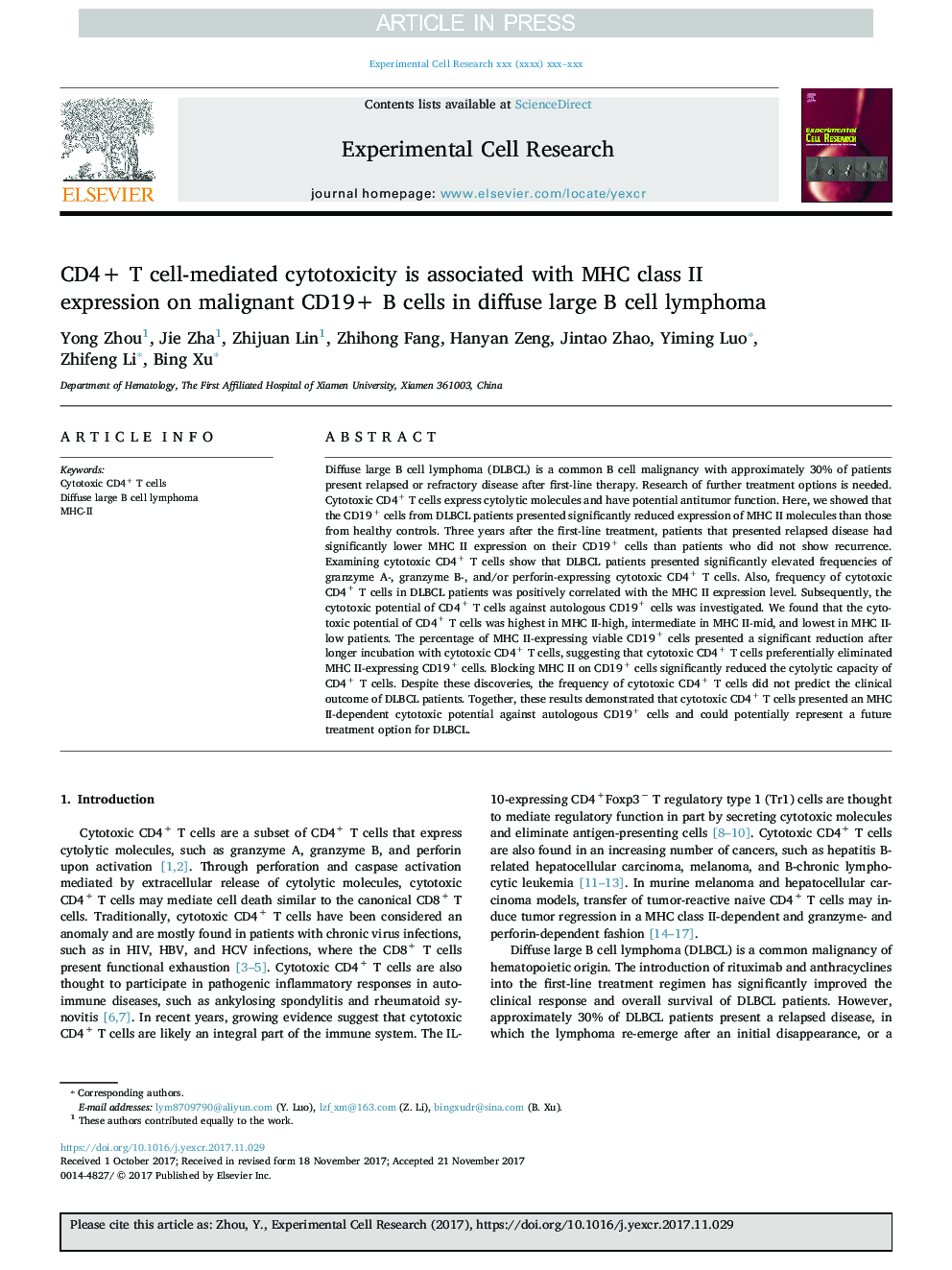| Article ID | Journal | Published Year | Pages | File Type |
|---|---|---|---|---|
| 8451538 | Experimental Cell Research | 2018 | 6 Pages |
Abstract
Diffuse large B cell lymphoma (DLBCL) is a common B cell malignancy with approximately 30% of patients present relapsed or refractory disease after first-line therapy. Research of further treatment options is needed. Cytotoxic CD4+ T cells express cytolytic molecules and have potential antitumor function. Here, we showed that the CD19+ cells from DLBCL patients presented significantly reduced expression of MHC II molecules than those from healthy controls. Three years after the first-line treatment, patients that presented relapsed disease had significantly lower MHC II expression on their CD19+ cells than patients who did not show recurrence. Examining cytotoxic CD4+ T cells show that DLBCL patients presented significantly elevated frequencies of granzyme A-, granzyme B-, and/or perforin-expressing cytotoxic CD4+ T cells. Also, frequency of cytotoxic CD4+ T cells in DLBCL patients was positively correlated with the MHC II expression level. Subsequently, the cytotoxic potential of CD4+ T cells against autologous CD19+ cells was investigated. We found that the cytotoxic potential of CD4+ T cells was highest in MHC II-high, intermediate in MHC II-mid, and lowest in MHC II-low patients. The percentage of MHC II-expressing viable CD19+ cells presented a significant reduction after longer incubation with cytotoxic CD4+ T cells, suggesting that cytotoxic CD4+ T cells preferentially eliminated MHC II-expressing CD19+ cells. Blocking MHC II on CD19+ cells significantly reduced the cytolytic capacity of CD4+ T cells. Despite these discoveries, the frequency of cytotoxic CD4+ T cells did not predict the clinical outcome of DLBCL patients. Together, these results demonstrated that cytotoxic CD4+ T cells presented an MHC II-dependent cytotoxic potential against autologous CD19+ cells and could potentially represent a future treatment option for DLBCL.
Keywords
Related Topics
Life Sciences
Biochemistry, Genetics and Molecular Biology
Cancer Research
Authors
Yong Zhou, Jie Zha, Zhijuan Lin, Zhihong Fang, Hanyan Zeng, Jintao Zhao, Yiming Luo, Zhifeng Li, Bing Xu,
